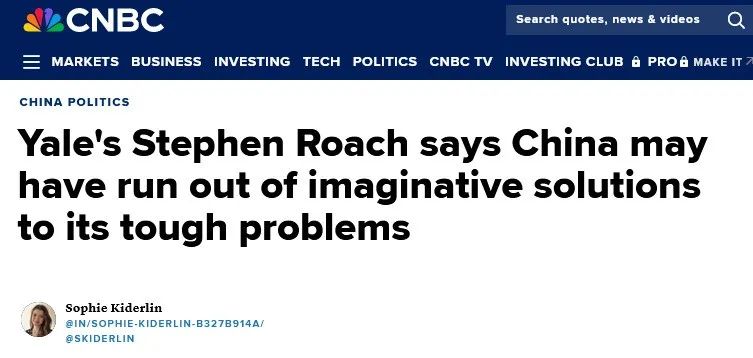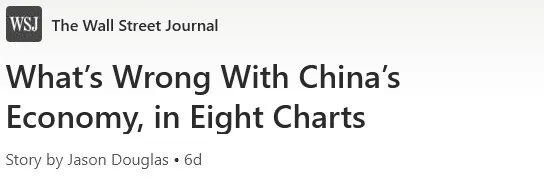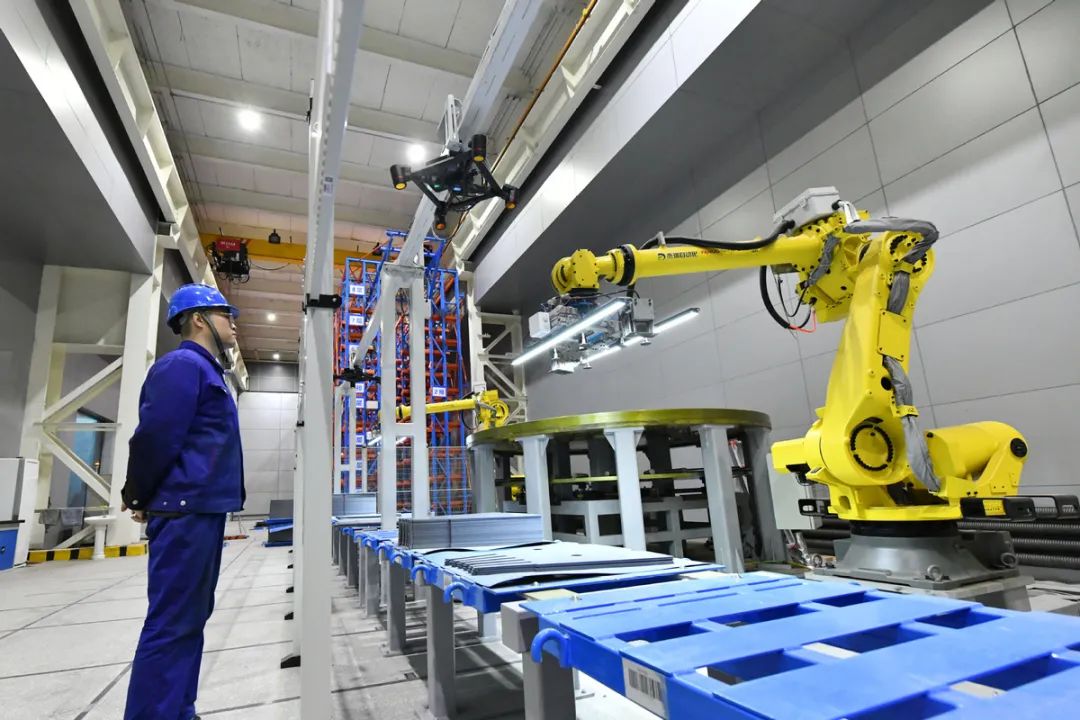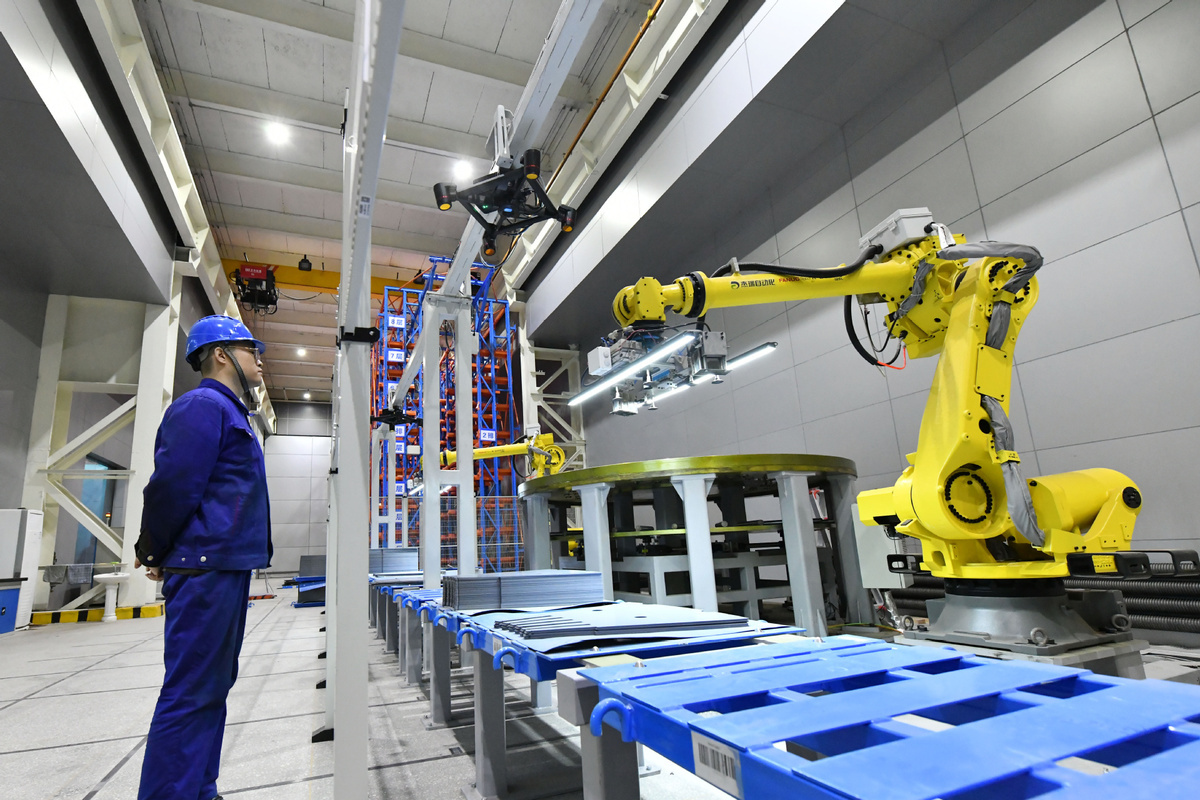美国学者:为何西方媒体上的中国经济满是乱象?因为你看到的只有偏见

一些西方媒体经常唱衰中国经济,质疑中国经济发展成就,刻意歪曲事实,误导公众认知。这一现象反映出西方对于中国的看法和叙事基于两大偏见:一是中国不如西方,二是中国强大之后会给世界秩序造成破坏。事实上,中国制定了合理的经济增长目标,发展势头依旧强劲,并且一直是世界经济增长的主要推动力,对全球发展的贡献远超西方。
在一些美国主流媒体的新闻标题中,中国的经济发展似乎已陷入困境,比如下面几个例子:



……
这些报道以及类似的新闻都在刻意引导公众认知,让人们相信中国正步入经济不确定的黑暗深渊,将对中国、中国人民及整个国际社会造成深刻影响。但我们必须对这种戏剧化的报道持怀疑态度。为什么?因为我们通过梳理西方媒体对中国的硬新闻报道就不难发现,西方有关中国的叙事都基于以下两大主要观点:
第一个观点,中国不如西方,因此中国所做的一切必然是不完善、不恰当,甚至不好的。
比如,中国近年来推出了首款自主研制的大型客机C919。一位“专家”表示,中国称该飞机为“自主研制”是无稽之谈,因为“C919的与众不同之处在于,所有能让它飞上天的部件,几乎没有一样来自中国”。然而事实上,飞机的大部分部件还是中国生产的。因此人们不禁要问,中国的航空业之所以受到这样不公正的批评,是不是因为它尚无能力制造出自己的飞机发动机或其他主要部件呢?
如果有一天,中国拥有这种能力了,接下来西方媒体又会怎么说呢?
接下来他们马上就会抛出第二个观点:中国一心要摧毁西方建立的世界秩序,如果中国成功了,将给所谓的“自由世界”带来巨大破坏和灾难。平时就对中国少有正面评价的美国外交关系委员会近日表示,中国会支持符合其利益的国际行动,但会试图“破坏”与其目标不一致的政策。就算它说得没错,可是美国自己呢?美国对待国际共识的态度经常是“合则用,不合则弃”,这又当如何评价?近期美国多次阻止联合国有关加沙危机的停火提案的通过,就是它冥顽不化的最新例证。
换句话说,中国和其他国家一样,有权在全球范围内推动和捍卫其国内和国际倡议。
总之,你在西方媒体上一定会读到关于中国经济的种种“乱象”,这时只需牢记这两大偏见,即“他们不如我们”和“他们要对付我们”,就见怪不怪了。
我们不妨换个视角,来看看国际货币基金组织(IMF)今年1月份发布的《世界经济展望》。文件显示,由于“中国、美国以及大型新兴市场和发展中经济体”的增长预期被上调,全球经济增长率预计将在2024年达到3.1%,并在2025年1月达到3.2%。
IMF预计中国2024年的GDP增长率为4.6%,远高于西方七国集团中任何一员,例如美国增长率预计仅为2.1%。尽管如此,路透社却还表示4.6%的增长率根本算不上好,认为中国经济可能无法“在后疫情时期实现强劲、可持续的反弹”。然而对于美国2.1%增长预期,路透社却大加赞赏,认为“由于美国经济前景的改善抵消了欧元区的疲软,今年全球经济的表现有望比几个月前预期的更好......”
IMF不得不提醒人们,“在过去的15年里,中国一直是世界经济增长的主要推动力,贡献了全球名义GDP增长的35%,而美国只贡献了27%”。

3月5日,中国2024年政府工作报告发布,其中预计今年中国经济将增长5%。这一数字显然是合理的,但却遭到了一些西方媒体的恶意质疑。
就在上周,中国驻纽约总领馆副总领事钱进就美国舆论场唱衰中国经济作出回应。他表示,中国经济稳中向好、长期向好的基本面没有改变,高质量是中国经济发展的鲜明主题。他还援引世界知识产权组织2023年发布的报告指出,中国是全球百强科技创新集群数量最多的国家。
有任何西方主流新闻机构对钱进的言论进行报道或分析吗?当然没有。原因很简单,因为他所传达的信息与前述有关中国的负面报道大相径庭。所以,下次阅读有关中国经济的文章时,请务必注意是出自哪家媒体,想想它有什么目的。如果是一家西方媒体或智库,那么你可能需要再到别的地方看看其他观点。
本文原文发表在中国日报国际版 "Western media piling on the gloom withintent"
出品:中国日报中国观察智库
Western media piling on the gloom with intent
By Anthony Moretti | China Daily Global | 2024-03-08
 A staff member observes the operation of intelligent equipment at the Harbin Electric Machinery Co Ltd in Harbin, Heilongjiang province, Feb 22, 2024. [Photo/Xinhua]
A staff member observes the operation of intelligent equipment at the Harbin Electric Machinery Co Ltd in Harbin, Heilongjiang province, Feb 22, 2024. [Photo/Xinhua]
According to the headlines of some mainstream US media, China's economy is in trouble. Here are just a few examples:
CNBC: "China may have run out of imaginative solutions to tough problems"
Time magazine: "China's economic slump is here to stay"
Wall Street Journal: "What's wrong with China's economy, in eight charts"
These and other stories like them want you to believe that China is heading toward a period of deep, dark economic uncertainty, and that the repercussions for the country, its people and the global community are going to be significant. You should be skeptical of such dramatic reporting, because the Western narrative about China is based on two pillars that are evident in almost all hard-news reporting about the country.
The first pillar of that narrative is that China is not as good as the West, and therefore anything it does must be incomplete, inadequate or bad.
China's recent rollout of its C919 commercial airplane, the first domestically built airliner, is an example. One expert said China's assertion that the aircraft is homegrown is nonsense because "the C919 is unique in that almost nothing that keeps it in the air is from China". However, with a majority of the aircraft's components coming from China, one is left to wonder if the country's aviation sector is being unfairly criticized because it has not yet built its own airplane engines or other major parts.
Once it does, then what?
The second pillar of the Western narrative: China is determined to destroy the Western-created world order, and if it succeeds, the damage will be immense and painful for the so-called free world. The US Council on Foreign Relations, which rarely has anything positive to say about China, recently suggested that China will support international efforts that align with its norms, but will try to "undermine" policies that do not support what it seeks to accomplish. Even if that statement were true, then what are we to say about the United States and its willingness to dismiss global ideas that it does not like? Blocking cease-fire resolutions emanating from the United Nations relating to the crisis in Gaza is the most recent example of US intransigence.
Put another way, China has as much right as any other nation to promote and defend its domestic and international initiatives across the world.
Those two pillars of bias, which could be summarized as "they are not like us" and "they are out to get us", should be kept in mind when you read Western-media suggestions of the inevitable economic chaos that will affect China.
Let's turn to the World Economic Outlook, published in January by the International Monetary Fund, for a different perspective. That document suggests that global economic growth is pegged at 3.1 percent for 2024 and 3.2 percent for 2025 because of "upgrades" to the economic forecast for "China, the United States, and large emerging markets and developing economies".
China's GDP growth in 2024 was projected by the IMF at 4.6 percent, far higher than any Western-based G7 country. (The IMF projects that US growth will be 2.1 percent.) Nevertheless, Reuters has suggested that 4.6 percent is simply not good enough, saying that China may be unable to "mount a strong and sustainable post-COVID pandemic bounce". Yet Reuters is full of praise for the prospects of the US realizing 2.1 percent growth, concluding that "the global economy is on course to hold up better this year than expected only a few months ago as an improved outlook in the United States offsets eurozone weakness".
The IMF has had to offer the reminder that "over the past decade and a half, China has been the main driver of the world's economic growth, accounting for 35 percent of global nominal GDP growth, while the United States accounted for 27 percent".
China's annual Government Work Report, delivered on Tuesday, suggests that the Chinese economy will grow by 5 percent this year, a figure that should not be considered unreasonable.
Just last week, Qian Jin, the deputy consul general of China in New York, issued an important statement about China and its economy. Qian said China's economic development remains "steady", with "high quality" being the theme of such development. Furthermore, quoting from a 2023 World Intellectual Property Organization report, Qian said China is home to "the world's largest number of top 100 science and innovation clusters".
Did any major Western news agency offer reporting or analysis of his remarks? Of course not, because such information runs counter to the aforementioned negative narrative about China.
The author is an associate professor in the Department of Communication and Organizational Leadership at Robert Morris University in Pennsylvania.